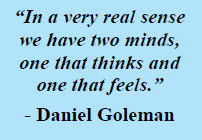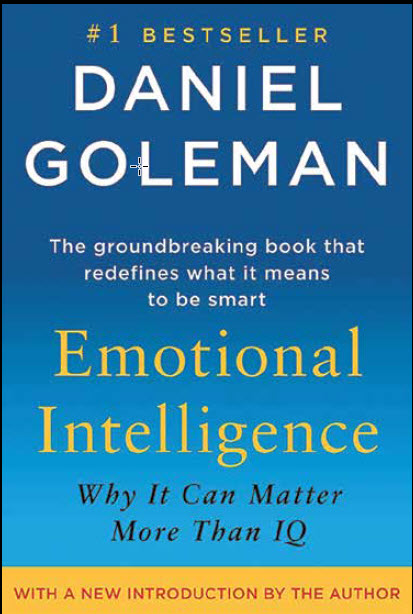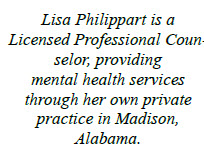 By: Lisa Philippart
By: Lisa Philippart
What did my client mean when she said, “I tend to be an emotional thinker”? I’m going to assume that by “emotional thinker” she meant that she tends to make sense of her experiences and makes decisions based on primarily how she feels emotionally. An intellectual thinker, however, would be more rational or analytical in the way she makes sense of her experiences and makes decisions. My client’s goal was to be more of an intellectual thinker. Here are a few suggestions I had for her that you may find helpful.
 Let’s start by not making it intellectual vs. emotional. While emotions can be helpful in our thinking, the key is to listen and be aware of what our emotions are telling us. We can then use them when helpful, but not be afraid to disregard them when they are unhelpful. Likewise, analytical reasoning can be a very helpful tool in many situations, but less helpful in others. Most big decisions will require a mixture of both types of thinking since they are not mutually exclusive. The trick, of course, is to adjust the balance depending on the demands of the situation.
Let’s start by not making it intellectual vs. emotional. While emotions can be helpful in our thinking, the key is to listen and be aware of what our emotions are telling us. We can then use them when helpful, but not be afraid to disregard them when they are unhelpful. Likewise, analytical reasoning can be a very helpful tool in many situations, but less helpful in others. Most big decisions will require a mixture of both types of thinking since they are not mutually exclusive. The trick, of course, is to adjust the balance depending on the demands of the situation.
If you want to be a more intellectual thinker, you might want to spend more time around those analytical thinkers. It helps to be around these thinkers in person if possible, but you can “absorb” online or through video or audio as well. For example, you might look for a handful of podcasts where the host is very logical in the way he/she thinks and communicates. If you commit to listening to those for just 30 minutes a day, that critical way of thinking will eventually rub off on you.

To think more rationally, you might try filtering your emotions through your values. When emotions lead to unhelpful decisions, it’s usually because our primary motivation is to feel better in the moment, rather than doing what will lead to our long-term best interest. In other words, problematic emotional reasoning is problematic because the behaviors it encourages don’t align with your values. What is more helpful is to filter your emotional decisions through the lens of your values. When your emotions push you in one direction, ask, “Does this behavior align with my values or go contrary to them?”
 So these are some big picture suggestions. I’ve also got a handful of more specific tactical suggestions to think less emotionally and more rationally.
So these are some big picture suggestions. I’ve also got a handful of more specific tactical suggestions to think less emotionally and more rationally.
- Look for the evidence. Do I have real, verifiable data or experience suggesting this decision is good or bad?
- What are the pros and cons? Before making that big decision, think about both the expected benefits and the expected costs of a decision.
- Do your thinking on paper whenever possible. Doing your thinking on paper forces you to clarify thoughts and be specific.
- Schedule a time to think through a difficult problem. Don’t just do it on the fly or last minute.
- Make it a habit to always generate the best possible counterargument to any decision you are contemplating.
- Reflect on bad decisions. When a decision doesn’t turn out well, make time to compassionately reflect on how and why you made the decision and what led to the bad outcome.
By: Lisa Philippart
Licensed Professional Counselor







